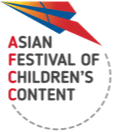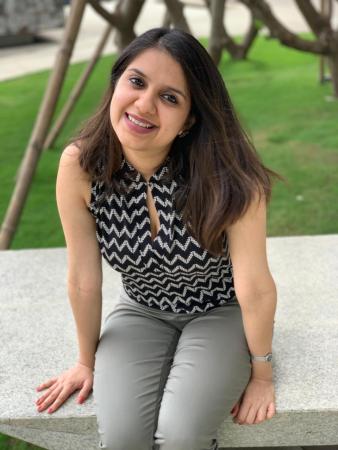What is Time?: Employing translation as a pedagogical tool
Essay
A poem I frequently use in my translation workshops in UK schools is poet and lyricist Javed Akhtar’s Hindustani poem ‘Waqt’ (time):
ye vaqt kyā hai
ye kyā hai āḳhir ki jo musalsal guzar rahā hai
ye jab na guzrā thā
tab kahāñ thā
kahīñ to hogā
guzar gayā hai
to ab kahāñ hai
kahīñ to hogā
(What is time
What is this after all that keeps passing by
When it did not pass by
Where was it
It must have been somewhere
If it has passed
Where is it now
It must be somewhere)
The poem is the poet’s philosophical reflections on the concept of time. He compares time to trees that seem to pass by as we are in a moving train—in truth, it is the trees that are still and us who are in motion. He wonders whether time is actually still and eternal, and it is us who pass it by, not vice versa. The Western world has calendarised time into a linear concept, whereas in other cultures, time can be seen as cyclical. In fact, the word ‘kal’ (pronounced ‘cull’) in Hindi means both yesterday and tomorrow; a product of understanding time as fluid as ‘kal’ means a unit of time away from today, in either direction—the past or the future.
Culture and memory are embedded within language, and translating literature from other cultures brings different perspectives to even fundamental notions about our lives such as time.
Culture and memory are embedded within language, and translating literature from other cultures brings different perspectives to even fundamental notions about our lives such as time. Translation as a pedagogical tool is not utilised enough in schools. I remember while I was in school in New Delhi, the Central Board of Secondary Education (CBSE) introduced a new subject called Creative Writing and Translation Studies. I was probably one of ten students in the entire country who took up this subject and sat the exam, and we were probably the first and last cohort of students to have opted for this subject, as it was removed from the national curriculum later. The ‘translation studies’ textbook included exercises in translating fiction, non-fiction, technical documents and poetry and drama as well. My particular interest has always been in songs and poetry, and I ended up honing my own craft and passion through this subject in school, without realising what a huge role it would play in my life later on.
In 2019, I was selected to participate in the Poetry Connection India-Wales arts collaboration hosted by Literature Across Frontiers in the UK. The aim of this collaboration was to conduct school workshops across Wales as a part of their Welsh Baccalaureate provision, and conduct cross-cultural workshops along the themes of culture and citizenship. I was paired with my friend and mentor Elin Haf Gruffydd Jones for this project, who is a brilliant translator and academic and now is the Director of the Centre for Advanced Welsh and Celtic Studies in Aberystwyth Wales. Elin and I worked on a workshop for students that focused on the similarities and differences between Wales and India - the size of the nations; the population; the economic indices.
While some of these factors could not be more different, we also highlighted the similarities - an entire region is the North East of India (the ‘khasi’ community) sings the Welsh national anthem as their anthem, given their historical connections with Welsh missionaries who had given their language a script for the first time.
While some of these factors could not be more different, we also highlighted the similarities - an entire region is the North East of India (the ‘khasi’ community) sings the Welsh national anthem as their anthem, given their historical connections with Welsh missionaries who had given their language a script for the first time. While this piqued the curiosity of students and invited them to learn more about the historical connections between two seemingly disparate regions, for the next exercise I read out my Hindi translation of a famous Welsh song, ‘Rhedeg i Paris’[1] (Running to Paris) and asked them to guess the song. The song contains familiar English words like Eiffel Tower and Mona Lisa, which I retained in the Hindi translation, so that it was easy to catch for students. There was a moment of excitement as students recognised the song in translation, and then we then set it to the tune and all sang it together in Hindi as an exercise.
My school sessions in the UK started with schools in Wales through my association with Literature Across Frontiers; it moved to my affiliation with Shadow Heroes as a translator-educator working on a project to explore race through translation in the classroom; and then finally with the Oxplore initiative at University of Oxford to take language education to sixth form students in order to create an interest in studying languages at the university level. My aim in these workshops has always been to create an interest in a ‘foreign’ language for students by demonstrating how much of other languages students in the UK already know about. Words such as Chutney, Avatar, Bungalow, Pyjamas, Shampoo, Yoga and Guru are all words that have originated in Hindi. This creates a sense of surprise and wonder in the classroom, and also makes a completely new language accessible to a group of people who may have thought it to be a very distant language from them.
Every language is intricately connected with one another—I have even found similarities between Sanskrit and Welsh while learning the latter. There is no better window than translation to bring about this understanding amongst students from a young age, to encourage them to remain curious about languages and cultures different from them. At a time in the world when it is almost urgent to create empathy for the Other, translation works like magic towards this cause.
About Mohini Gupta
Mohini Gupta is a DPhil Candidate at the University of Oxford. She is the founder of the digital collective Mother Tongue Twisters. She has co-edited The Hindu Bard: The Poetry of Dorothy Bonarjee (Honno Press, 2023) and Rethinking Education in the Context of Post-Pandemic South Asia: Challenges and Possibilities (Routledge, 2023).
Catch Mohini in this session at AFCC: Bringing Translation to the Classroom

